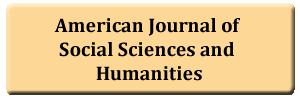Teachers' Self-Assessment Ability to Teach in an Inclusive School Environment
DOI:
https://doi.org/10.55284/ajel.v7i2.708Keywords:
Attitudes, Inclusive education, Self-efficacy, Teachers.Abstract
Social inclusion in many cases refers to measures and actions in various fields to increase the rate of active participation of people in all dimensions of life, valuing the civic and democratic responsibility to accept and promote diversity. Educational inclusion cannot be achieved in isolation from social inclusion, between the two concepts being a relationship of double determination. This research aims to investigate the teachers' ability to teach in an inclusive school environment and looks at to which extent the education process at a microlevel is favourable to the inclusion of students with SEN across schools in Romania. Moreover, the research tries to investigate to which extend are teachers influenced by their attitudes and knowledge about educational inclusion and its practice when it comes to the inclusion of SEN students. These results show that teachers expressed both acceptance and concern about the inclusion of students with SEN in mainstream schools. However, in general, the answers indicate that most teachers are in favour of inclusion by expressing positive beliefs and attitudes, such as: seeing inclusive education as a way to combat discrimination, the acceptance of each student regardless of health, etnic or religious staus and socioeconomic status are welcome in mainstream education system and what stands out is the fact that techers disagree with the view that inclusion is problematic, rather than beneficial.



